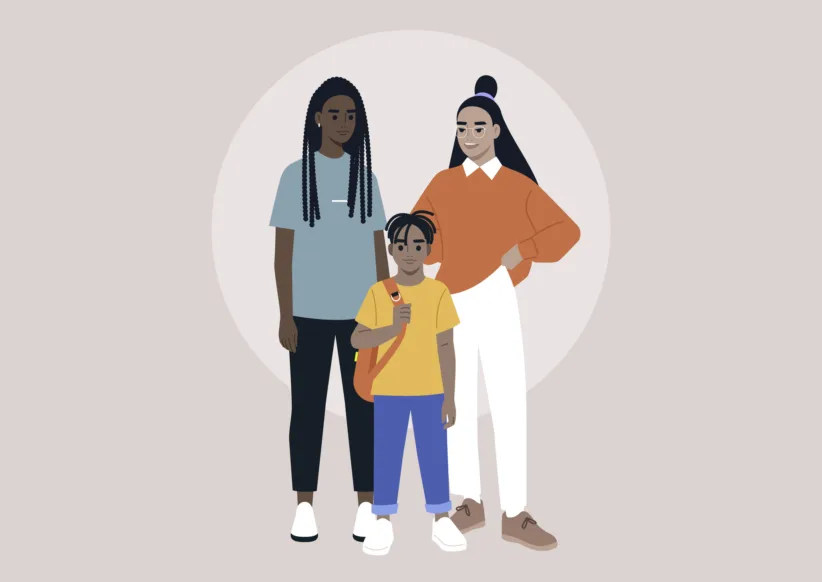I’m often asked about how to get kids to eat vegetables. Of course! What parent hasn’t struggled through a kid-imposed ban on veggies? Even the most intrepid little eaters will suddenly decide that vegetables—even ones they happily enjoyed days before—are off the list.—
Having spoken to tons of parents and survived toddler picky phases first hand, I appreciate why this is such a common question. Every parent wants to make sure that her kids are eating a well-balanced diet. But, truth be told, I think it’s the wrong question to ask. And so to the inquiries, I offer an unconventional and, for some, uncomfortable answer:
Stop worrying. And, by all means, don’t hide vegetables. Instead, be bold and do just the opposite—serve them frequently and enjoy them openly.
Peek-a-boo: I don’t see you
Hiding vegetables is the practice of sneaking veggies, usually purees, into kid-approved dishes. While not exclusively, the dishes tend to be carb, cheese, or meat heavy kid-menu standouts like pancakes, mac-and-cheese, and meatloaf. Yummy stuff, indeed. But also the makings of a diet built on comfort and fast food staples.
The practice was most recently popularized by Jessica Seinfeld’s book, “Deceptively Delicious,” and the “Sneaky Chef” cookbooks. You can see on parent communities like Mamapedia that it’s an incredibly popular thing to do… because it works! How could it not with a rotating menu of creamy pastas and quesadillas?! And who can blame moms for giving something that works a go? Certainly not me! But (you knew that was coming), though hiding vegetables may get nutrients down the gullet every night, it’s a short term “win” that undermines the long term goal of helping our kids establish healthy eating habits for life.
Focusing on the right problem
Most parents (understandably) consider not eating vegetables the “problem” that needs to be solved. But what’s at the root of this “problem” behavior? There are two basic explanations for refusing veggies. One is that your kids are going through a picky phase. The other is that they simply don’t like vegetables.
There is evidence that children start getting picky around 2-years-old. Evolutionarily, this coincides with increased mobility—when baby might be exploring places without mama or papa immediately nearby to protect them. Pickiness, natural skepticism of new foods, prevented the cave baby from putting just about anything (like a poisonous berry) in her mouth. This protective adaptation persists in children today.
Not liking vegetables as a general rule is a little different. Some kids don’t have a taste for vegetables. But here’s the thing about taste: it develops. (That’s why kids who grow up in India, for example, have a taste for spicy curry, but may not like the ketchup that so many American kids love.) And just like all other aspects of our children’s development, it takes time and we play a major role in how tastes take shape.
Hiding vegetables may successfully get you through a picky phase and may even disguise vegetable flavor so that vegetable-averse children eat the good stuff. In other words, it may solve the behavioral problem. It won’t address the root issues of pickiness or taste, though, and this may set your child up for a lifetime of veggie dislike.
Sound all doom-and-gloom? It may not be! Kids are constantly changing and experimenting. The pickiest eater may turn into her generation’s most famous chef. But, according to research, the habits our children form when they are young will lay the foundation for their eating habits for life. So, more likely, distaste for vegetables will persist into their adulthood. With obesity and diabetes on the rise, who wants that?
So, then what?
If we shift our focus from a daily battle to get our children to eat vegetables at every meal to a long-term goal of getting our children to develop a taste for vegetables, things get a little easier. The pressure on any given meal is relieved because all we have to do is (drum roll, please!) keep calm and stay the course. That’s it. No battles. No separate meals. No extra cooking and pureeing. (I’ve heard advocates for hiding claim that pureeing veggies barely takes extra time. Not sure about you, but just getting dinner on the table is hard enough for me. Steaming, pureeing, and making separate portions takes more time than I have most nights.)
Let me get more specific, keeping in mind that helping our kids develop a taste and love for vegetables takes time, commitment, and patience.
Keep Calm
This part is self-explanatory, but it’s also the hardest part! Dealing with a picky eater or self-proclaimed veggie refusenik is frustrating and worrisome. Frustrating because of the endless power struggles. And worrisome because you can’t help but wonder if your child is getting the nutrients they need. Seriously. Can a child develop normally on a diet of cheddar cheese and sliced turkey alone? These feelings are normal. But turning the dinner table into a battle zone will only make things harder on everyone.
Instead, keep faith that this, too, shall pass and that our kids are good at getting what they need. If they couldn’t go a while on cheese and turkey alone, then pickiness wouldn’t be a very smart adaptation. We’ve got to trust that nature has our kids covered to some extent. And, if you’re not big on Mother Nature, research suggests that young kids often need less food than their parents think they need. If they’re hungry or their little bodies need something, they’ll know and they’ll eat.
Stay the Course
Remain focused on the long-term goal: trying to help our children develop a taste for vegetables. When it comes to other aspects of our children’s development, we often look to learning theory. It’s no different with our new veggie goal. We need to employ tools for effective teaching: modeling behavior and attitudes, sending a clear message, repeating it, and being consistent. So if you want your kids to learn that vegetables are versatile, delicious, and the foundation of a healthy diet, you have to eat and openly feed them a wide variety of vegetables prepared in all different ways. And, remember, if the veggies don’t taste good to you, they won’t taste good to your kids! Take time, look for recipes, and experiment (i.e., have fun!). It can be as simple as choosing in-season veggies that are simply roasted with garlic and olive oil (a seriously quick and flavorful preparation). The consistent message at home has to be that we all eat vegetables, they are yummy, and an openly accepted part of most every meal.
This doesn’t mean that you can’t throw spinach in lasagna (on the contrary) or sweet potato into pancake batter if that’s what tastes good to you. These are great ways to enjoy vegetables. But don’t go out of your way to conceal that vegetables are a part of the meal. It’s important for your kids to know that those pancakes taste yummy because of the sweet potato, not despite it.
To those of you with non-veggie eaters, this probably sounds like an uphill battle. In many ways it is. You may be in for a long haul. But if you keep calm, is that so bad? Isn’t all of parenting a long haul? It’s what we do! And, with the right attitude, we can relax and make meal time fun again. I promise—your kids will get it eventually. Don’t they always?
–Stacie Billis, blogger at chowmama.com





















